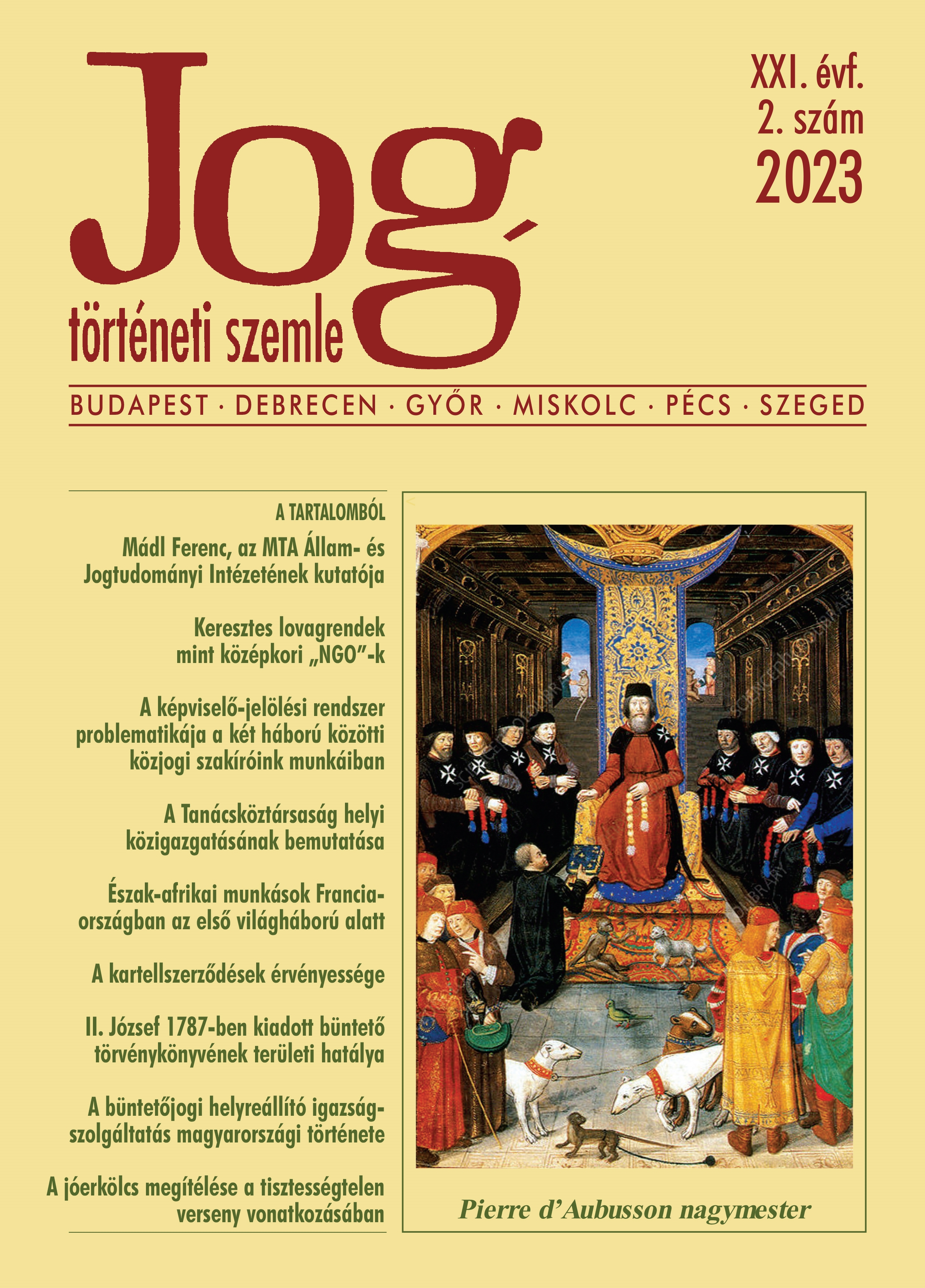Café maure
North African workers in France during the First World War
DOI:
https://doi.org/10.55051/JTSZ2023-2p46Abstract
The outbreak of the First World War also drew a sharp line in French immigration policy. During the protracted fighting, it was particularly important to organise the continuity of industrial production in the service of the army. Conscripted soldiers were increasingly lacking not only in industrial production, which directly served the war effort, but also in agriculture.
As for labour replacement, the government initially concentrated on using the available free labour, i.e. the unemployed, but it became clear that this was not enough to meet the needs of the war industry and that only the recruitment of additional foreign labour could solve the situation. Paris did take steps to recruit additional European labour, but wartime conditions had noticeably narrowed the channels.
The colonial territories were therefore the most important source of additional labour. Recruitment from the French colonies, including North Africa, began in the spring of 1916 and ships soon called at the port of Marseille. The government made great efforts to ensure the smoothest possible integration of workers into the labour market. However, this was not without difficulties. The unfamiliar working environment, lack of qualifications, different language and other cultural differences meant that North African workers faced a variety of difficulties that were difficult to overcome. Tensions between French and colonial workers also became of increasing concern.
The government considered this a temporary solution and did not want to make the presence of colonial workers in France permanent. They also expected to return home when their contracts expired or at the end of the war. After the end of the war, mass repatriations began, and for a short time it seemed that France no longer needed foreign workers, certainly not non-European ones, in the course of disarmament. Of the 130 000 or so North African workers who arrived during the war, only about 13 000 were in France in the autumn of 1919, and 7000 by the end of the year. However, it soon became clear that neither the reconstruction work nor the labour needed for economic recovery could be met from internal sources. The traditional European immigration channels were reopened, but this time Paris sought to meet the surplus labour needs not primarily from the resources of the colonies, but from Central Europe. However, the experience of using colonial workers was incorporated into French migration policy between the two world wars.






